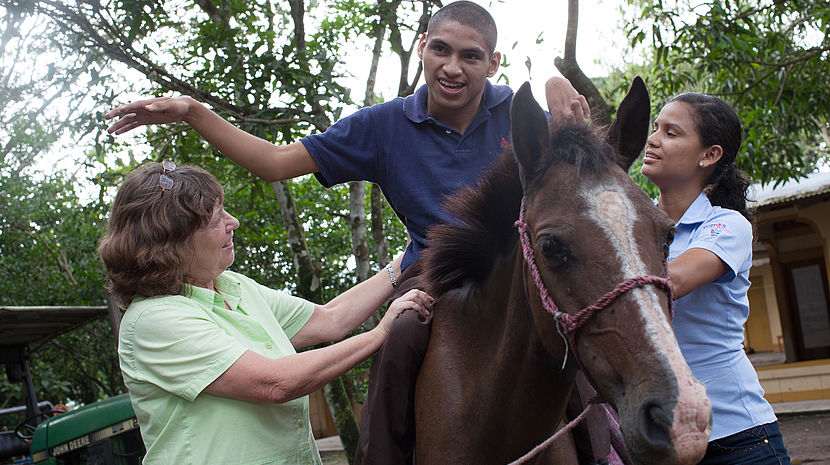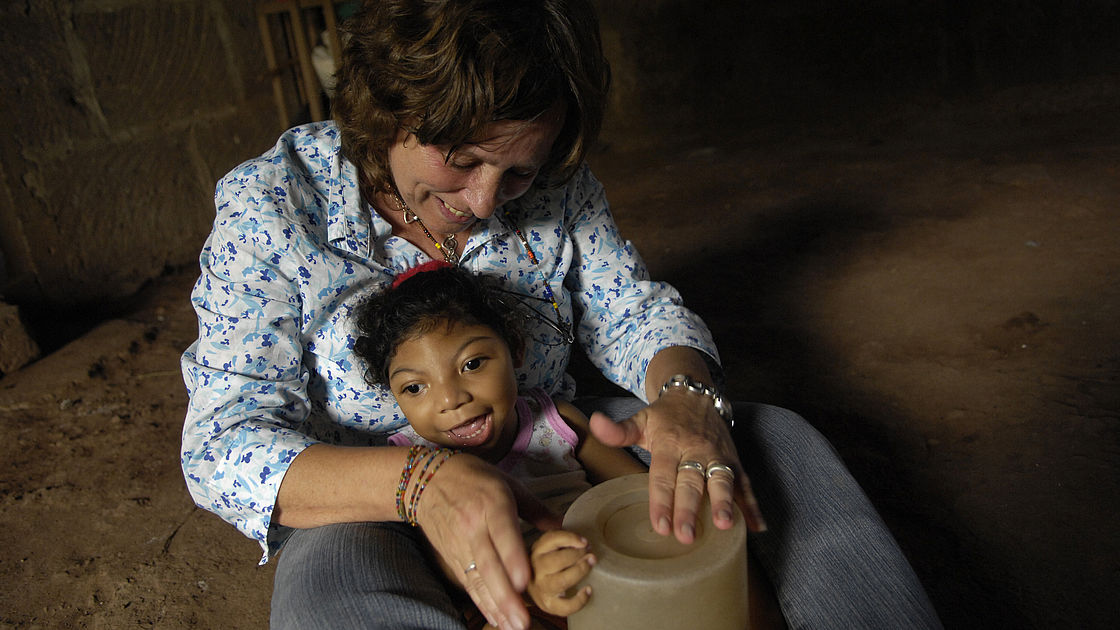A Lifelong Advocate for Inclusion

Katharina Pförtner (left) and community worker Aminta Daniela Rocha (right) during a horse therapy session with 20-year-old Ariel, who has physical and mental disabilities.
© CBM/Harms
For 20 years, Katharina Pförtner (recently retired CBM Global and Regional Advisor for Latin America) campaigned for inclusion in Latin America on behalf of CBM. She has seen and experienced a lot in the past 20 years – some sad experiences as well as hopeful ones. She is now freshly retired - but boredom is a long way off.
CBM: You have worked with so many people. Anything that has stayed with you all these years?
Katharina: Yes, a boy from Salvador - he was born with an open back. He was very intelligent but lived in poverty in a small hut. But thanks to CBM, his development, along with that of his family and local community, has been inspiring to watch! When you see that - it truly convinces you about the importance of inclusion.
CBM: What attracts you the most about inclusion?
Katharina: Social justice! Even as a child, social justice was important to me – my mother says that I always tried to help weaker students. (laughs)
CBM: Why did you go to South America?
Katharina: When my husband Gene and I went to Nicaragua to volunteer for a year in 1989, I was introduced to the concept of involving an entire community in inclusion work. I thought that was great! And I really wanted to change local perceptions of people with disabilities in these villages.
CBM: What was the problem there?
Katharina: Most people had no idea how to help people with disabilities. I have seen the most insane things, like people with disabilities being hidden or tied up like animals. Once you address this ignorance, you can see a very noticeable evolution in mindsets.

Katharina Pförtner doing some exercises with 2-year-old Yelika who has microcephalus.
© CBM/Grossmann
CBM: How have things improved in the past 20 years?
Katharina: Legislation has made a big difference – giving people with disabilities the same rights as everyone else. And a lot is happening at grassroot levels. For example, in a project in Nicaragua, young people with intellectual disabilities are now working as assistants of community workers. This is such a huge achievement that has also benefitted their families. Because when a person changes, his environment changes as well.
CBM: Have you also experienced setbacks?
Katharina: Yes, due to the many natural disasters. I have seen several hurricanes, earthquakes, floods, now the Corona pandemic. The effects are terrible in Nicaragua - the people are desperate; the health system is overwhelmed and so many are dying.
CBM: Are you having a hard time leaving right now?
Katharina: Yes. So, I'm going to go on a little longer. The government of Honduras has requested me to train 700 teachers in inclusive homeschooling because of the ongoing pandemic. I must be careful not to work too much during my retirement! (laughs)
CBM: So, you're staying in Nicaragua?
Katherina: In the future I would like to live in Germany for a few months a year. I am helping build a multigenerational house in Bremen, where I could grow old one day. But most of the year I stay in Nicaragua in my finca (farm) on the edge of the jungle with monkeys and parrots. It is a little paradise and of course I don't want to give it up.